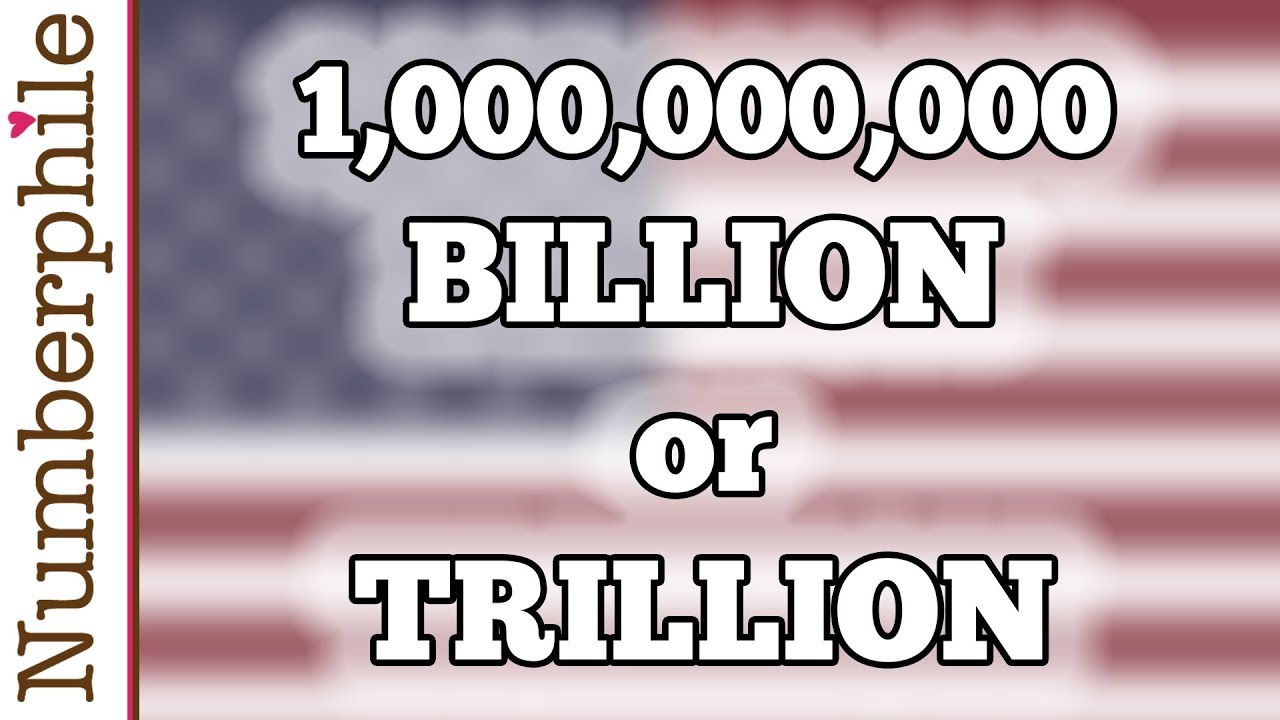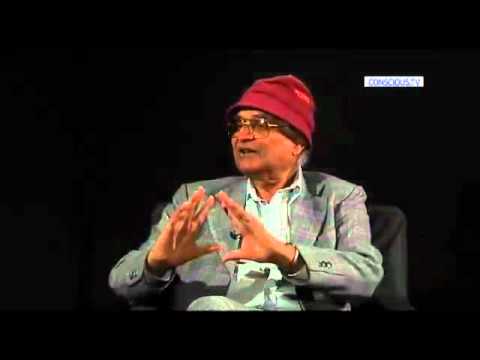Numberphile
We discuss millions, billions, trillions and centillions is this film about the long and short scales. We also touch on quadrillions, sextillions, milliards, billiards and the Greek myriad.
More links & stuff in full description below ↓↓↓
Featuring Dr James Grime and Dr Tony Padilla. More about them at http://www.numberphile.com/team/index.html
NUMBERPHILE
Website: http://www.numberphile.com/
Numberphile on Facebook: http://www.facebook.com/numberphile
Numberphile tweets: https://twitter.com/numberphile
Subscribe: http://bit.ly/Numberphile_Sub
Videos by Brady Haran
Patreon: http://www.patreon.com/numberphile
Brady’s videos subreddit: http://www.reddit.com/r/BradyHaran/
Brady’s latest videos across all channels: http://www.bradyharanblog.com/
Sign up for (occasional) emails: http://eepurl.com/YdjL9
Numberphile T-Shirts: https://teespring.com/stores/numberphile
Other merchandise: https://store.dftba.com/collections/numberphile
Source




In German:
1 (10^0) = Eins
1000 (10^3) = Ein Tausend
1000000 (10^6) = Eine Million
10^9 = Eine Milliarde
10^12 = Eine Billion
10^15 = Eine Billiarde
10^18 = Eine Trillion
10^21 = Eine Trilliarde
….. Quadrillion, Quadrilliarde, Quintillion, Quintilliarde etc
The short system just has a more simplistic meaning…
Million is first in the big number features billion second while trillion is third. So on and so on. Your long system has to fill in gaps and makes it wonky. Just saying.
I learn so much from watching these videos.
This is so confusing if you translate from English to German or from German to Englisch.
All over latinamerica people use billion as one million of millions.
For some reason the us always has the system that makes less sence. Long live the Long system.
I had no idea this was a thing. As a Brit living in the UK and only ever being taught the short form, I never even questioned it, but a lot of what they say makes sense.
It's a pity Britain already moved over to the American side in 1974. Otherwise, the Brexiteers could have used it as a ploy.
"If we stay in the E.U. , our total net worth will only be a few billion. But if we leave, we'll be worth trillions overnight!"
Listening as a European….
"There's the correct English way …"
<already getting annoyed>
"and there's the incorrect American way"
<Visibly relaxing>
Seriously though, even though I do agree the long system intrinsically makes more sense, I don't think one system is really superior to the other, as long as it's used consistently. A lot of confusion can arise though when underinformed journalists or other people attempt to translate big numbers from American articles into my language, and end up accidentally greatly inflating the numbers….makes me need to check the source to make sure they got it correctly. I would suppose it to sometimes go wrong in the other direction as well.
It would therefore be preferable in the long run to all move to one system. As a European I would of course advocate the long system for that, but if need be, going to the short system would still be better than having these two conflicting systems.
8:12 as a Canadian mainly speaking English but grew up speaking/learning French in school… I can confirm this is true.
We still use Milliard <3. I was born in '85 and I've learned the long versions
6:54 no u we still use one thousand million in portugal
10 -> ten
10 10 -> 100 hundred
100 100 -> 10000 thousand
10,000 10,000 -> 10⁸ million
10⁸ 10⁸ -> 10¹⁶ billion
10¹⁶ 10¹⁶ -> trillion
working in base 10, using 10 as the definition is better
1:21 "bØt,"
The short system is more practical… just update the names, the system is still better. The issue is merely the names you're calling it. Pretty superficial.
What about the multiplication table? If you not clue about it I will not be surprised at all.
James looks so young
Bezos going for true billionaire status
As an INDIAN…i am relaxed!!!
In norway 1 billion is actually 1,000,000,000,000 however we are so influenced by english that most ppl don't know billion even exists in norwegian. They just think of billion as the well-known english word for "milliard" which is what we call the number 1,000,000,000
Hi. We use the long system in Argentina (the same in every spanigh speaking country)
To add, maths in Chinese uses a different system where the base is 万, 亿… meaning 4, 8 and 12 zeros.
My favourite number is quadragoogolzillion Ciao for now
The prefix indicates the number of zeros past the thousand (so the number of zeros minus 3) divided by 3. That's logical enough, we already made a convention to divide numbers into tens, so we divide large numbers in three decimal cases
So how old is the universe in new money?
We use millards in Danish
That’s quite the revelation. I’m from Jordan. In the Arab world, the Arabic word for a person who has 1,000,000,000 in currency is ملياردير which is pronounced “mill-yard-dare” which we use interchangeably with the word بليونير which is pronounced “Bill-yo-nare”. Fascinating. Jordan was a British Mandate so we may have picked up the British long system at one point and adopted it to some degree. Very interesting!
I live in the UK, I didn't know that it was just us and America 😲
1.000.000 : 1Million
1.000.000.000 : 1Milliarde
1.000.000.000.000 : 1Billion
1.000.000.000.000.000 : 1Billiarde
– 🇩🇪
Growing up in Australia, I remember learning the two billions (thousand million/million million) as well as the ton (metric) vs. tonne (imperial). This was in the 1990s, but it was still evident that the million million interpretation was logically preferred, and the thousand million was considered an unhelpful Americanisation that was useful for talking about money but deeply inelegant in mathematical terms!
Number wise perhaps they lose their meaning, but in everyday English it simplifies things
I appreciate the beauty of the explanation of the long system, but the short system has it's merits. when trying to write out a number in numerals, start with a thousand, and then add groups of three zeroes to the end, depending on the prefix of the word. million (mono,1) 1,000,000. Billion (Bi,2) 1,000,000,000. Trillion, (tri,3) 1,000,000,000,000. Septillion (sept, 7) 1,000,000,000,000,000,000,000,000.
Piece of cake, and it helps keep track of where you are in the size.
Eastern Europe here, Romania to be more precise.
Had a course in uni on English from an economics pov… we actually had a few hours discussing this exact topic because it's so alien to us.
But if you look on the short scale from different perspective, like:
million: 1000 x 1000^1
billion: 1000 x 1000^2
trillion: 1000 x 1000^3
quadrillion: 1000 x 1000^4
…
suddenly bi-, tri-, quad-, … prefixes start to make sense. And I'm telling this as a long scale native user.
It should be stated in the video, instead they just assumed that if formula "1000^n" doesn't make sense for short scale, they won't be thinking more, they'll just say that long scale is better.
So the takeaway from this is that if we want to use use numbers that are base 1000 we should adopt the nomenclature: 1 thousand, 1 bisand, trisand, quadsand… then it would make mathamatical sense, and we wouldn't get old fogies complaining over the definition of powers of millions…
Side note, I love myriad as 10,000 will use that for specifically that from now on!
I am from India(Asia) and we use the short system not any other system.
as someone from the netherlands it's very frustrating that the americans ruined another system, the long system is native here, but converting becomes a pain in the *** when speaking in english
In india there are neither millions nor billions
We have lakh and crore
Which are more confusing
Can you explain it?
So I came in here to hear the differences in words cause to my silly mind I thought we were all on the same system. But left with disappointment on the loss of what seems like a better system. Being American though I am used to illogical systems.
ONE BILLION DOLLARS 💵!!!!
It's easy to say something is illogical if you refuse to think about the logic.
thousand is thousand (just because?)
million is that scaled up (by a thousand) once (m for mono?)
billion is that scaled up twice
trillion is that scaled up thrice
and so on
Just as arbitrary as any naming scheme. Though with the benefit that it at least names some scales that we actually deal with rather than skipping over them.